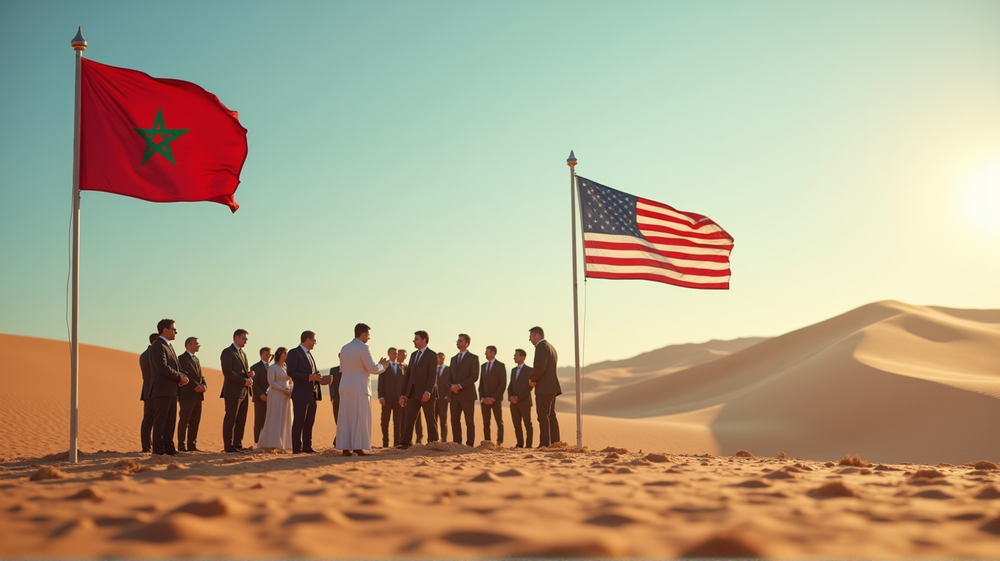In a world often divided by geopolitical tensions, diplomacy has the rare potential to turn longstanding conflict into a beacon of hope. Such was the case recently when Moroccan ambassador to the United Nations, Omar Hilale, effusively commended former US President Donald Trump for his unique contribution to the Western Sahara peace process. As stated in Morocco World News, Trump viewed the decades-old conflict not as an insurmountable obstacle but as a challenge with a potential pathway to peace.
A Pivotal Recognition
Speaking to Newsmax, Hilale emphasized Trump’s recognition of Morocco’s sovereignty over its southern provinces. This stance marked a significant departure from the usual narratives that circulate among global powers. “He’s the first one as a leader to believe that there is peace,” Hilale stated, underlining the monumental shift from seeing only conflict and division to glimpsing unity and reconciliation.
The UN Resolution’s Historic Moment
The catalyst for these commendations was the UN Security Council’s Resolution 2797, which endorsed Morocco’s Autonomy Plan as a genuine solution to the Western Saharan dispute. For many, this resolution is more than just a political maneuver; it’s the culmination of half a century of diplomatic efforts and economic investments by Morocco, led by a vision once considered unattainable. Hilale’s comments paint a picture of national pride and celebration that swept across Morocco, including its southern provinces.
Complex Dynamics with Algeria
Central to the Western Sahara narrative is Algeria, a nation whose government has historically supported the Polisario Front, challenging Morocco’s territorial claims. Despite these tensions, Hilale highlighted the need for dialogue, echoing Morocco’s long-standing appeal for Algeria to engage directly in the peace process. The fractures in Algerian-Moroccan relations—exacerbated by diplomatic severing and closed borders—illustrate the complexity of the regional dynamics that the US has ventured to mediate.
Unity Day: A Step Towards Reconciliation?
To memorialize this diplomatic breakthrough, King Mohammed VI has declared October 31 as Unity Day, a new national holiday celebrating Morocco’s national sovereignty and aims to foster reconciliation in the region. As Hilale optimistically reflected, the hope is that future celebrations will mark not only national unity but also reconciliation with Algeria, ushering in a new era of economic integration in the Maghreb.
A New Chapter in Diplomatic Relations
While past relations have seen rocky roads and closed doors, leaders like Trump and King Mohammed VI illuminate paths that may yet lead to a peaceful resolution in Western Sahara. The delicate dance of diplomacy calls for both history and future aspirations to guide decision-makers as they chart courses out of conflict and into coexistence.
Could this be the beginning of a new diplomatic era for Western Sahara and its neighboring regions? Time holds the answers, but for now, hope is notably higher on the horizon.












